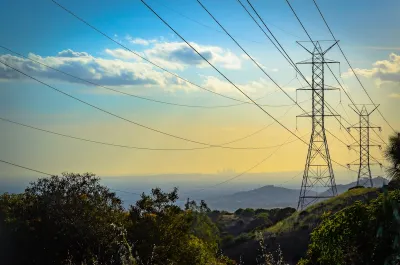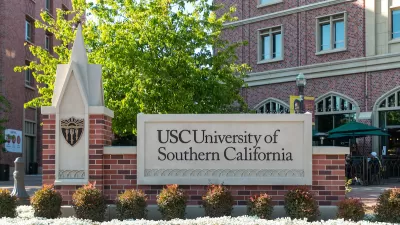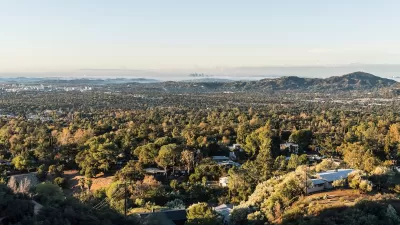Utility restoration efforts in areas affected by the January wildfires in Los Angeles will be exempt from environmental regulations to speed up the rebuilding of essential infrastructure.

California Governor Gavin Newsom issued an executive order suspending environmental laws for utilities working to restore infrastructure in areas damaged by the Los Angeles fires.
According to a report by Grace Toohey for the Los Angeles Times, the order exempts utilities working on “electric, gas, water, sewer and telecommunication infrastructure” from California Environmental Quality Act (CEQA) rules. “In a letter sent last month, Newsom urged Southern California Edison, the area’s largest electricity provider, to do all it can to rebuild lines underground in these areas.” A spokesperson for Southern California Edison said the exemption will help the company move electrical wires underground.
A prior executive order also exempts rebuilding work from the California Coastal Act, although the Coastal Commission typically exempts such work after a disaster as long as new construction doesn’t exceed the old footprint by more than 10 percent.
Some environmentalists worry that the exemptions set a poor precedent and could put communities at further risk of future fires and other disasters. “Susan Jordan, executive director of the California Coastal Protection Network, said Newsom’s continued exemptions build on concerning environmental practices she’s seen in the fires’ aftermath, including the decision not to test soil in affected areas.”
FULL STORY: California suspends environmental laws to speed rebuilding of utilities after L.A. fires

Alabama: Trump Terminates Settlements for Black Communities Harmed By Raw Sewage
Trump deemed the landmark civil rights agreement “illegal DEI and environmental justice policy.”

Planetizen Federal Action Tracker
A weekly monitor of how Trump’s orders and actions are impacting planners and planning in America.

The 120 Year Old Tiny Home Villages That Sheltered San Francisco’s Earthquake Refugees
More than a century ago, San Francisco mobilized to house thousands of residents displaced by the 1906 earthquake. Could their strategy offer a model for the present?

LA’s Tree Emergency Goes Beyond Vandalism
After a vandal destroyed dozens of downtown LA trees, Mayor Karen Bass vowed to replace them. Days later, she slashed the city’s tree budget.

Sacramento Leads Nation With Bus-Mounted Bike Lane Enforcement Cameras
The city is the first to use its bus-mounted traffic enforcement system to cite drivers who park or drive in bike lanes.

Seattle Voters Approve Social Housing Referendum
Voters approved a corporate tax to fund the city’s housing authority despite an opposition campaign funded by Amazon and Microsoft.
Urban Design for Planners 1: Software Tools
This six-course series explores essential urban design concepts using open source software and equips planners with the tools they need to participate fully in the urban design process.
Planning for Universal Design
Learn the tools for implementing Universal Design in planning regulations.
Ada County Highway District
Clanton & Associates, Inc.
Jessamine County Fiscal Court
Institute for Housing and Urban Development Studies (IHS)
City of Grandview
Harvard GSD Executive Education
Toledo-Lucas County Plan Commissions
Salt Lake City
NYU Wagner Graduate School of Public Service





























